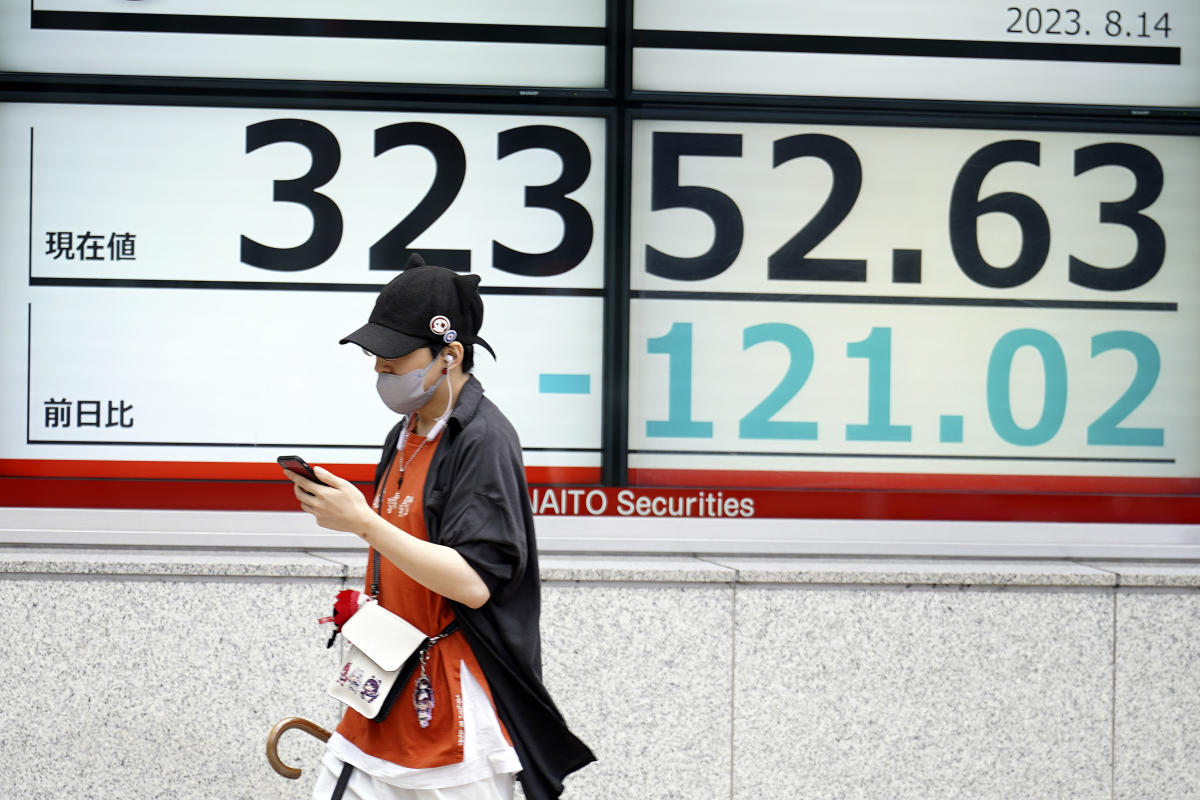BEIJING (AP) – Asian stock markets fell on Monday after robust inflation in the United States revived fears that the Federal Reserve could raise interest rates again.
Hong Kong’s main market index fell 2.4%. Shanghai, Tokyo and Sydney also fell behind. Oil prices sank.
Wall Street’s benchmark S&P 500 fell 0.1% on Friday after government data showed producer price inflation accelerated in July. Previous data showed consumer prices rose faster in July.
“It’s hard to ignore setbacks to the optimistic outlook,” Tan Boon Hing of Mizuho Bank said in a report. “The data needs to provide reasons ‘for the Fed’ not to raise.”
The Shanghai Composite fell 1% to 3,156.89 and Tokyo’s Nikkei 225 fell 1.3% to 32,064.14. Hang Seng in Hong Kong sank to 18616.11.
South Korea’s Kospi Index fell 1% to 2565.43 and Sydney’s S&P-ASX 200 fell 1% at 7270.60.
India’s Sensex opened 0.5% lower, at 64,998.39. New Zealand and Southeast Asian markets also declined.
On Wall Street, the S&P 500 fell to 4,464.05 on Friday after the Labor Department producer price index It rose 0.8% year-over-year, accelerating from a rate of 0.2% in June. The index fell 0.3 percent for the week, its second consecutive weekly decline.
The Nasdaq Composite Index fell 0.7 percent to 13,644.85. The Dow Jones Industrial Average rose 0.3%, to 35,281.40.
The price data conflicted with investors’ hopes that the Federal Reserve will decide inflation is under control after a year of rapid interest rate increases to cool economic activity and no more increases are needed.
The majority of Wall Street traders are still betting that the central bank will make no change to the federal funds rate at its September meeting, according to data from CME Group. Those hopes helped the S&P 500 gain 19.5% in the first seven months of this year.
Critics warned that Wall Street quickly formed a consensus that inflation was under control, that the economy would avoid a recession and that the Federal Reserve had ended the cycle of rate hikes.
Earlier, government data showed that US consumer inflation accelerated to 3.2% in July from 3% in the previous month. This is down from last year’s peak above 9% but still above the Fed’s target of 2%.
Bond yields rose, including the two-year Treasury yield, which rose to 4.89%. The yield, which closely tracks the Fed’s forecast, was at 4.80% just before the report was released. The yield on the 10-year Treasury rose to 4.16% from 4.10% late Thursday. Helps determine rates for mortgages and other important loans.
Fed officials say interest rate decisions will depend on employment, inflation and other data.
Major US retailers are set to report quarterly results this week, including Home Depot on Tuesday, Target on Wednesday and Walmart on Thursday.
In energy markets, US benchmark crude lost 87 cents to $82.32 a barrel in electronic trading on the New York Mercantile Exchange. The contract rose 37 cents on Friday to $83.19. Brent crude, the price basis for international oil trade, fell 87 cents to $85.94 a barrel in London. It rose 41 cents on Friday to $86.81 a barrel.
The dollar fell to 144.93 yen from 144.97 yen on Friday. The euro fell to $1.0934 from $1.0951.
